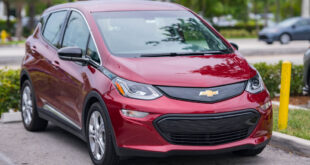Electric Car Charging Time: Everything You Need to Know Electric cars (EVs) are rapidly gaining popularity as a sustainable alternative to traditional gasoline-powered vehicles. However, one major concern for potential EV owners is charging time. Understanding how long it takes to charge an electric car is essential for making informed decisions. This guide provides a detailed look at factors affecting charging time, types of charging stations, and practical tips to optimize the process.
1. What Influences Electric Car Charging Time?
Several factors determine how long it takes to charge your electric car:
- Battery Size: Larger batteries take longer to charge. For example, a 100 kWh battery will require more time than a 40 kWh battery.
- State of Charge (SoC): Charging from 0% to 80% is often faster than the final 20% due to battery management systems.
- Charging Station Speed: Charging times vary significantly between Level 1, Level 2, and DC fast chargers.
- Charger Compatibility: The charger’s power output must match your EV’s capacity.
- Temperature: Cold weather can slow down charging as batteries operate less efficiently in low temperatures.
2. Types of Charging Levels
Understanding the different charging levels is key to estimating how long it will take to charge your electric car:
Level 1 Charging
- Definition: Uses a standard 120-volt outlet.
- Charging Time: Adds about 3-5 miles of range per hour.
- Best For: Overnight charging at home or in emergencies.
Level 2 Charging
- Definition: Utilizes a 240-volt outlet, commonly found in homes and public charging stations.
- Charging Time: Provides 20-30 miles of range per hour.
- Best For: Regular daily charging needs.
DC Fast Charging
- Definition: High-power stations that deliver direct current (DC) electricity.
- Charging Time: Can charge up to 80% in 20-40 minutes.
- Best For: Long trips or quick top-ups.
3. How to Reduce Charging Time
To minimize charging time and maximize convenience:
- Plan Ahead: Map out charging stations along your route using apps like PlugShare or ChargePoint.
- Upgrade Your Home Charger: Install a Level 2 charger at home for faster charging.
- Avoid Peak Times: Public chargers may slow down due to high demand during busy hours.
- Monitor Your SoC: Charging within the optimal range (20%-80%) can save time and extend battery life.
10 Tips for Optimizing Electric Car Charging
- Install a Level 2 charger at home for everyday convenience.
- Use apps to locate and reserve charging stations.
- Charge during off-peak hours to save money and time.
- Pre-condition your EV in cold weather to reduce charging delays.
- Monitor charging sessions via your car’s app to prevent overcharging.
- Maintain your EV battery by keeping it between 20% and 80% charge.
- Carry a portable Level 1 charger for emergencies.
- Avoid letting the battery deplete entirely, which can increase charging time.
- Use fast chargers only when necessary to preserve battery health.
- Regularly check for software updates to optimize charging performance.
10 Frequently Asked Questions (FAQs)
- How long does it take to charge an electric car at home?
Charging times vary by battery size and charger type, but Level 2 chargers typically take 4-8 hours. - What is the fastest way to charge an electric car?
DC fast chargers are the quickest, providing 80% charge in 20-40 minutes. - Is charging an electric car cheaper than refueling a gas car?
Yes, EV charging is generally more cost-effective than gasoline. - Can I charge my electric car in the rain?
Yes, EV chargers are designed to be weatherproof. - Do all EVs support DC fast charging?
No, some older models may not be compatible with DC fast chargers. - How does temperature affect charging time?
Extreme cold or heat can slow charging due to battery efficiency limitations. - Is it safe to leave my car charging overnight?
Yes, modern EVs have safety features to prevent overcharging. - Can I use a regular power outlet to charge my EV?
Yes, but charging via a 120-volt outlet (Level 1) is slow and less practical. - How do I know when my car is fully charged?
Most EVs and charging stations provide notifications via their apps or dashboards. - Are public charging stations free?
Some are free, but many charge per session or by the kilowatt-hour.
Conclusion
Electric car charging time depends on several factors, including battery size, charger type, and environmental conditions. By understanding these aspects and following the tips provided, you can make EV ownership more convenient and efficient.
As EV technology evolves, charging infrastructure is improving, making electric cars a viable option for more drivers. Whether you charge at home or on the go, the key is planning and optimizing your approach to minimize inconvenience and maximize the benefits of driving an EV.
 oto car insurance used car repair
oto car insurance used car repair
